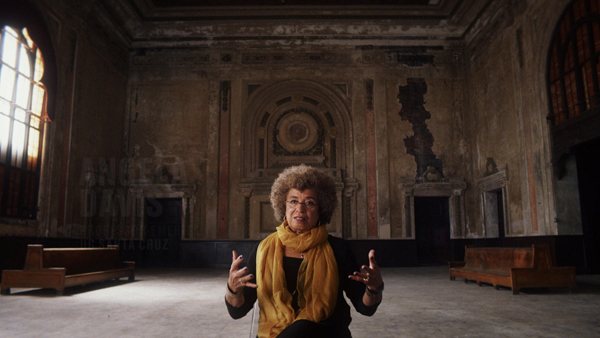It’s in the zeitgeist. The Black Lives Matter movement is front and center in the news. The Smithsonian opens the National Museum of African American History and Culture, and in the film world, a diversity crisis in the Academy of Motion Picture Arts and Sciences leads to an upheaval in membership rules. This moment in history marks a turning point in the country’s conversation about its citizens of color.
So when Netflix invited director Ava DuVernay (Selma) to make a new film, she felt the time was right to dig deep into U.S. history, politics, and social norms to examine a painful reality: the willful dehumanization of African Americans from slavery through the present day. Her resulting shocking, powerful documentary, 13th, opened the 2016 New York Film Festival on September 30, the first time a work of nonfiction was so honored.
With clarity and focus, DuVernay traces a history of inequality that has resulted in the highest incarceration rate in the world, with African Americans making up a grossly disproportionate percentage of prisoners. The film takes as its jumping-off point the Thirteenth Amendment in the U.S. Constitution. It abolished slavery and involuntary servitude “except as a punishment for crime whereof the party shall have been duly convicted.” In other words, an enslaved population became an incarcerated population through what is effectively a loophole in the amendment.
A measured approach to the filmmaking—with historical footage and talking-head interviews—keeps the emotional subject from boiling over. The topic may be disturbing, but the film is utterly compelling.
A degree in African American studies from UCLA formed the foundation for DuVernay to address the subject from an academic standpoint, with scholars, politicians, social justice advocates, pundits, and former inmates offering commentary and analysis. Henry Louis Gates, Michelle Alexander, Senator Cory Booker, Van Jones, and many others add weight to the thesis, such as Angela Davis, who was active in the civil rights movement and coined the term “prison industrial complex.”
Examples come fast and furiously: clips of actors in blackface playing the “evil negro” stereotype in D.W. Griffith’s 1915 film, The Birth of a Nation; archival footage of Malcolm X, Martin Luther King Jr., and Fred Hampton, a generation of black leaders that was wiped out; President Richard Nixon’s declaration of the war on drugs; and much more. From Nixon to Ronald Reagan to George H. W. Bush to Bill Clinton, politicians from both sides of the aisle have supported harsher crime policies that have had devastating effects. Bill Clinton, in news footage from 2015, expresses regret for the crime bill he signed into law as president in 1994 that resulted in unprecedented mass incarceration. The omnibus crime bill contained the federal “three strikes” provision, mandating life sentences for repeat offenders, including for drug-related convictions.
The film explores how private corporations profit from people behind bars—the more prisoners the better for businesses that supply infrastructure for penitentiaries or use prison labor for manufacturing goods. At one point, lingerie and leisurewear for Victoria’s Secret and J.C. Penney, respectively, was sewn by inmates.
As a major merchandiser of firearms, Walmart had a vested interest in supporting Stand Your Ground laws (that remove the need to retreat before using force in self-defense) at the time George Zimmerman was acquitted of killing 17-year-old Trayvon Martin in Florida. Walmart, along with many other major American companies, was a member of the American Legislative Exchange Council (ALEC), the conservative-leaning lobbying group that introduced Stand Your Ground, mandatory minimums, and the three strikes laws on behalf of its corporate members.
Chilling statistics flash onscreen to mark a soaring prison population decade by decade—from around 500,000 incarcerated in 1970 to more than two million today. One in three black men will go to prison in their lifetime. And yet many here testify on camera that you will receive better treatment if you’re white and guilty than if you’re black and innocent.
DuVernay reasons a coherent argument, and makes a staggering number of complex points comprehensible. Can 13th change hearts and minds? The dialogue is now open.

















Leave A Comment